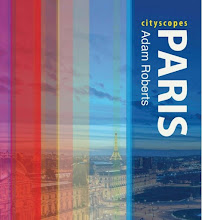 When Rupert Brooke wrote his poem 'The Soldier', the foreign field he imagined would surely not have looked like this. It is easy to picture his field as a burned and toxic land, today reclaimed by nature and heavy with oppressive silence, but altogether more difficult to think of his soldier reposing in a rumbling corner of Parisian suburbia.
When Rupert Brooke wrote his poem 'The Soldier', the foreign field he imagined would surely not have looked like this. It is easy to picture his field as a burned and toxic land, today reclaimed by nature and heavy with oppressive silence, but altogether more difficult to think of his soldier reposing in a rumbling corner of Parisian suburbia.
So why are there 29 identical graves here in the Levallois municipal cemetery, lined up to attention beneath a gently fluttering Union flag? Rich earth it may be, squeezed between a noisy railway line and the bustle of building sites, but it is far from the classic image of isolated military cemeteries. Far too from the scenes of battle and the trenches, far from the regiments and far from home. These are the graves of 29 victims from the British Commonwealth (including individuals from Australia, New Zealand, the West Indies and Canada), whose deaths spread over a period of six years (from 1914 to 1920, two years after the end of the war). How did they end up here? The answer is the Hertford British hospital situated on the other side of the town.
Far too from the scenes of battle and the trenches, far from the regiments and far from home. These are the graves of 29 victims from the British Commonwealth (including individuals from Australia, New Zealand, the West Indies and Canada), whose deaths spread over a period of six years (from 1914 to 1920, two years after the end of the war). How did they end up here? The answer is the Hertford British hospital situated on the other side of the town.


These were those who were battered and broken by war, but who didn't turn to dust on the battlefield. G.F. Roberts, a name that strikes a personal note, was a driver. B. Button died only a month after war was declared, but George Fernandez, an Australian, died five days after the Armistace was signed. There is even a female nurse from the British Red Cross here, Olive Craggs, who died in 1915.
All would have been taken injured from the field, and placed in a bed at the Hertford hospital. Theirs was a death not instant, but one which gave them time to think of the sights and sounds of home. Like millions of others though, theirs was a life which nevertheless ended, hearts at peace, in some corner of a foreign field.
'The Soldier'
Rupert Brooke
IF I should die, think only this of me;
That there's some corner of a foreign field
That is for ever England. There shall be
In that rich earth a richer dust concealed;
A dust whom England bore, shaped, made aware,
Gave, once, her flowers to love, her ways to roam,
A body of England's breathing English air,
Washed by the rivers, blest by suns of home.
And think, this heart, all evil shed away,
A pulse in the eternal mind, no less
Gives somewhere back the thoughts by England given;
Her sights and sounds; dreams happy as her day;
And laughter, learnt of friends; and gentleness,
In hearts at peace, under an English heaven.
 In the foreground, a building is being brought to the ground, naked except for a forlorn sign offering bargains on long since departed furniture stock. Behind, the giant Tour Courcellor is getting dressed up for a new decade. A curious contrast, but one which reminds us of a simple fact. In all construction there is first destruction.
In the foreground, a building is being brought to the ground, naked except for a forlorn sign offering bargains on long since departed furniture stock. Behind, the giant Tour Courcellor is getting dressed up for a new decade. A curious contrast, but one which reminds us of a simple fact. In all construction there is first destruction.


















































